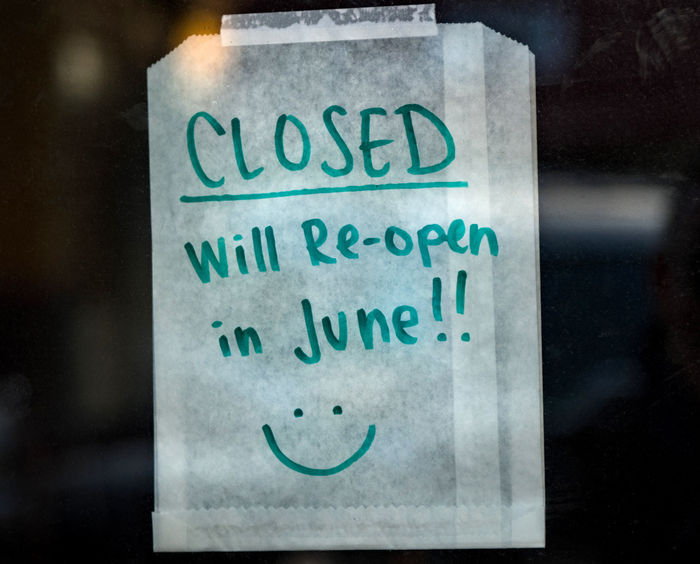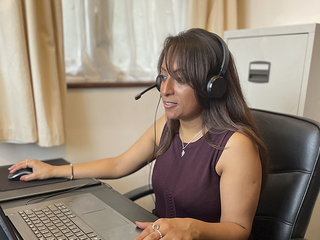Can people with blood cancer stop shielding on March 31?
This week, the Westminster Government announced its roadmap out of Covid lockdown in England, and it “anticipates that it will no longer be necessary to advise shielding beyond the end of March 2021”.

This week, the Westminster Government announced its roadmap out of Covid lockdown in England, and the big news for people with blood cancer (which include leukaemia, lymphoma and myeloma) is it “anticipates that it will no longer be necessary to advise shielding beyond the end of March 2021”.
The thing that will matter to people with blood cancer is, to use the Government’s phrase, data rather than dates. There are two things that need to happen that will make people with blood cancer feel safer:
- The infection rate for the virus becoming very low
- Data that shows the vaccines protect people with blood cancer.
The Government’s guidance document goes onto say: “The Government is considering the long-term support that may be needed for the Clinically Extremely Vulnerable, particularly for those who cannot be vaccinated or do not receive a significant increase in immunity from the vaccine.”
This is relevant for our community, because while we expect the Covid vaccines will have some effect for people with blood cancer – and we think everyone with blood cancer should definitely get vaccinated – it's likely that they will work less well for some.
But there are still important unanswered questions
- How effective will the vaccines be for people with blood cancer?
- Will they be more effective for some people with blood cancer than others?
The rest of the UK has, or soon will, be given a roadmap out of lockdown. But while people with blood cancer will benefit from a declining infection rate (the fewer people who are infected, the lower the risk of day-to-day activities), the more we understand about the immune response in people with blood cancer, the quicker they can get back to some normality.
Throughout the pandemic, the Government has shown a commitment to funding the research needed. And given how vital this research is, over the last few weeks we’ve been working to create a Blood Cancer Vaccine Taskforce, bringing together leading researchers to make sure this research is properly coordinated and has the necessary funding and sense of momentum.
Some of the research is already recruiting participants, and we’re hoping to see more start soon. The quicker this research is up and running, the quicker we can gain an understanding of how people with blood cancer respond to the vaccines.
The risk for people with blood cancer will remain unclear for some time
But however quickly the research happens, it will realistically be a number of months before we have a clear picture of how well the vaccines work for people with blood cancer. So when shielding ends on March 31, people with blood cancer still won’t know how great their risk is, and many of them won’t have had a second dose of the vaccine by then.
Of course, it’s down to each individual person to balance the risk of coming into contact with the virus with the benefit of social contact. But there will be many people with blood cancer who will choose to continue avoiding social contact after March 31, as hard as that might be after a year of the pandemic. This is why it’s so important to have clarity, so people are better able to make informed decisions.
It’s vital that the Government quickly makes it clear how it will support people with blood cancer after this date.

Want to read more stories like this?
Join our mailing list to get stories like this delivered directly to your inbox every month.
Given that on March 31 we won’t yet know how effective the vaccines are for people with blood cancer, we assume people with blood cancer will be included in the group that needs continued support beyond that date. But the Government needs to confirm this, and quickly.
It also needs to answer the questions that people with blood cancer are already worrying about:
- Will people with blood cancer continue to be financially supported if they cannot work from home, or will they feel forced to go back to busy workplaces they don’t feel safe in?
- What support will be available for parents with blood cancer who are worried about their children going back to school and potentially exposing them to the virus?
- Will the community support from pharmacies and councils continue to be available once shielding ends?
These are the questions we’ll be putting to the Government over the coming days. Over the last year, the Government’s poor communications and lack of clarity for people who are clinically extremely vulnerable has made a bad situation even more stressful, and we hope it does better this time.
The months ahead
Whatever support people with blood cancer are given after March 31 and however well the Government communicates, the next few months could be very difficult for our community. Just like last summer, people will be watching their friends going back to pubs and restaurants and wishing that they were there, too.
Our support line is there if you ever need to talk. You can call us free on 0808 2080 888 between 10am and 7pm on weekdays and 10am to 1pm on weekends. Our online forum is also a place where you can hear from other people going through the same kind of things as you.
The lifting of lockdown just applies to England. In Northern Ireland, shielding will be in place until April 1, and is scheduled to be reviewed on March 15. In Scotland, most of the country is in lockdown (Level 4), except for some islands that remain at Level 3. In Wales, the whole country is in Alert level 4, and restrictions are being reviewed every 3 weeks.

Worried about anything or have questions?
If you need someone to talk to, please don't hesitate to contact our Support Service by phone or email.
